While our avian friends have some pretty impressive qualities in common – forget flying, try building a nest sturdy enough to hold tiny hatchlings without using your hands! – birds belonging to the group of aerial insectivores are particularly impressive. Birds like swallows, swifts, martins, and nighthawks have a diet that consists almost entirely of insects, and rather than scooping them off the ground or picking them off leaves, they have to be agile enough to outmaneuver flying insects and catch them mid-air. Despite their impressive acrobatics, these birds are also currently facing a steeper population decline than any other group of birds in Canada.
In particular, six swallow species call British Columbia home for at least part of the year: Bank Swallows, Tree Swallows, Cliff Swallows, Violet-Green Swallows, Barn Swallows, and Northern Rough-winged Swallows. Each of these species are experiencing population declines, and Barn and Bank Swallows are officially designated as threatened species under COSEWIC (Committee on the Status of Endangered Wildlife in Canada).
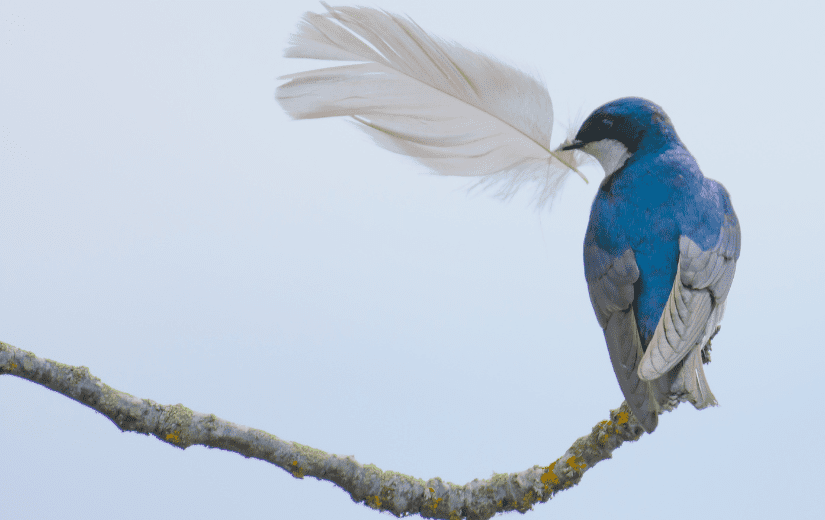
These birds face many threats, including changes to their food supply as flying insects become less available, a decrease in nesting and foraging habitat as our urban areas expand, and competition from other species for remaining nesting sites. In addition, when a species relies on flying insects as their food source, a spell of stormy weather can mean hungry days as bugs take shelter from wind and rain. If these rough weather patches occur when birds have a nest of babies to feed, even a few rainy days can jeopardize the survival of the clutch.
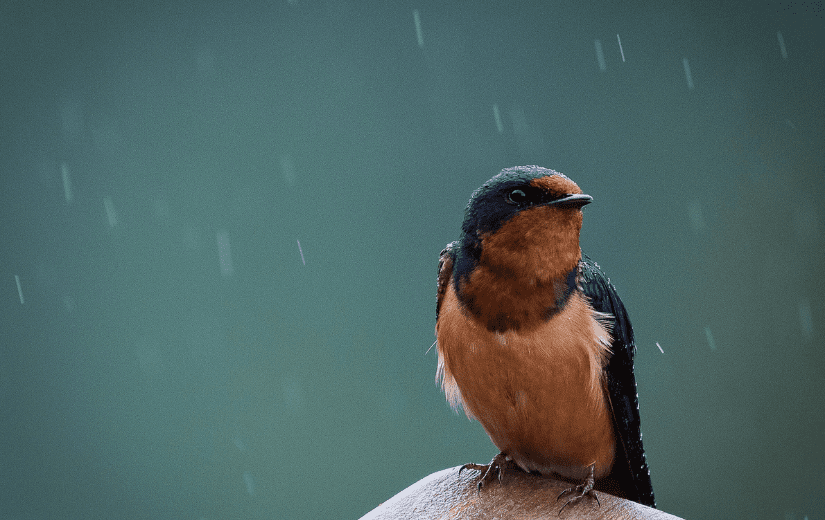
With so many challenges, these birds can certainly use a helping hand. Here are five easy ways to support local swallow populations:
1. Share your wildlife wisdom
One of the best ways to help protect wildlife is to learn as much as possible about where they are and what they need. Contact your local naturalist group or check out some field guides from your library to learn about species in your area. If you have nesting swallows nearby, you can become a citizen scientist by joining Project NestWatch and sharing your observations.
2. Build a box for babies
The absence of good nesting habitat is frequently a key source of species decline, particularly as we continue to expand our urban environment. For Tree Swallows and Violet-Green Swallows who typically nest in dead tree snags or take advantage of the nest cavities of other species, simple boxes can be constructed and put up to provide extra nest sites. Once you’ve learned which species are nearby, check to see which type of nest boxes are most appropriate.
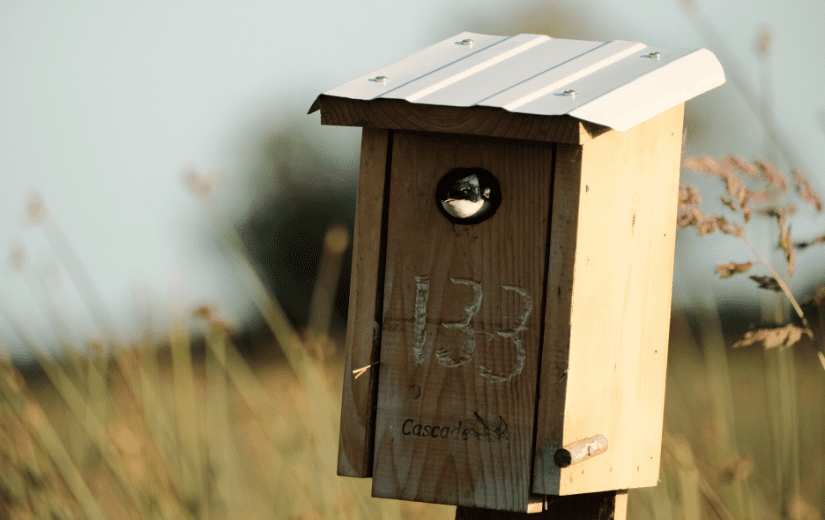
3. Don’t close the barn door
Barn Swallows can use a little extra help in the nest department too, but they don’t nest in cavities like Tree or Violet-Green Swallows. They build cup nests out of mud, high up inside barn structures, and with many barns being torn down and replaced with metal ones, these spaces are becoming harder to access. Opening up alternate spaces in garages and outbuildings can help provide additional nest sites, and installing a small shelf close to the ceiling in these structures provides a solid foundation for the swallows to build on. If you notice Barn Swallows nesting, make sure to give them lots of space to minimize disturbance.
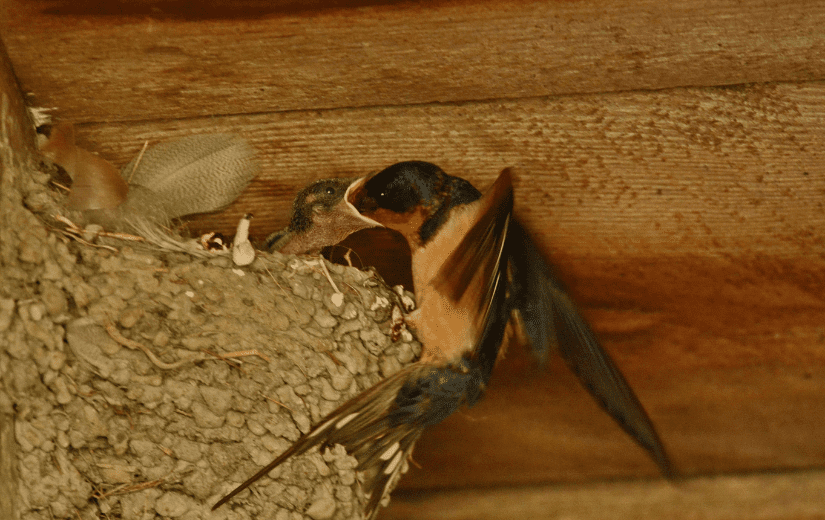
4. Go for natural bug control
Because these species rely almost exclusively on insects for their diet, pesticide use can greatly decrease their food sources. Encourage your neighbourhood to go pesticide-free — many municipalities have bylaws prohibiting or restricting pesticide use, but there’s still plenty of progress to be made to make sure this legislation is comprehensive.
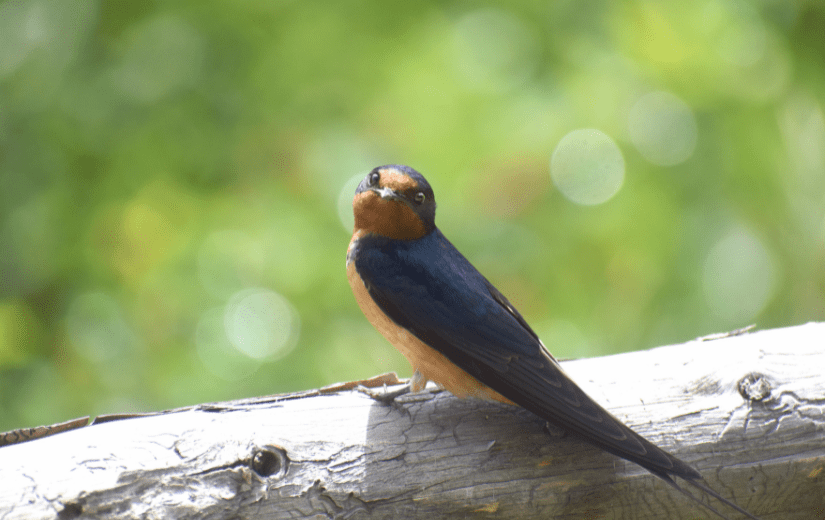
5. Let your green space go wild
Wherever possible, choose natural landscaping options, focusing on flowering plants that attract pollinating insects that can then serve as an added food source for local swallow populations. Providing access to clean fresh water in your garden (like a regularly-cleaned shallow bird bath) can also be a life-saver – particularly during hot dry summer months. Read more about creating a bird-friendly backyard.
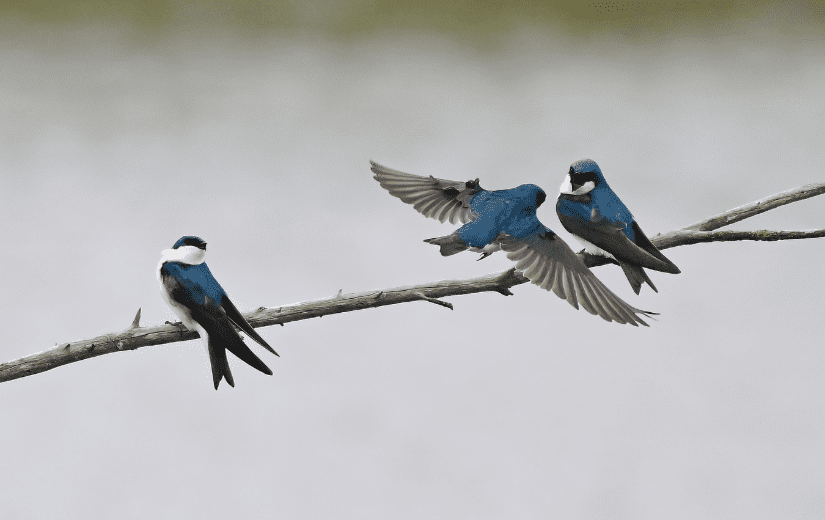
Finally, if you ever spot swallows or other wildlife in distress, contact your local wildlife rehabilitator for assistance or call the BC SPCA Animal Helpline for advice at 1-855-622-7722 . Help spread the word in your neighbourhood, and together we can help keep these aerial acrobats flying over our lakes and fields.
Subscribe to WildSense e-newsletter
Want to receive more stories like this, right in your inbox? Subscribe to WildSense, our bi-monthly wildlife newsletter.
The BC SPCA uses your personal information to update you on our work for animals as well as for advertising and analytics purposes. More information on uses and how to opt-out can be found in our Privacy Policy.
